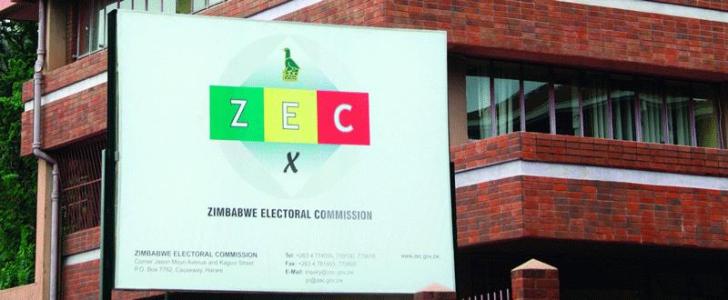News / Local
100 electoral cases filed against the Zimbabwe Electoral Commission
28 Nov 2023 at 05:15hrs |
306 Views

A total of 100 electoral cases were filed against the Zimbabwe Electoral Commission (ZEC) before and after the August general elections by aggrieved individuals, candidates and political parties, the national electoral body said today (Monday).
Zimbabwe went to the polls in August to elect a new president, and parliamentary and local government representatives.
ZEC said the majority of the court cases were filed by aspiring candidates, accusing the electoral body of various infractions.
Among other things, it said it had been taken to court over the voters roll, the delimitation exercise, and nomination fees increase, correction of the constitutional provision on provincial council party lists, and decisions of the nomination court in rejecting or accepting
nomination of prospective candidates.
In its Zimbabwe 2023 harmonised election report, ZEC said most of the court cases were filed after the sitting of the nomination court.
"One will be tempted to submit that Zimbabwe was becoming more and more litigious, which is probably a sign that more and more people are becoming aware of their rights. However, such litigation was not without its drawbacks in the preparation for the conduction of the elections,"
the electoral body said.
"The commission faced an unprecedented number of court challenges (more than 100 applications) arising from the outcome of the nomination courts. These court cases derailed its preparations and road map as it
sought to attend to the court challenges and to meet proclaimed electoral timelines," it said.
ZEC said 28 candidates (three for National Assembly and 25 for local authority) withdrew their candidature. The commission recommended that there should be a pre-defined timeframe whereby all electoral court cases should be cleared to give authorities
and the printer adequate time to print the ballots ahead of polling.
Some of the cases delayed the printing of ballot papers in some constituencies, and as a result the one-day election had to be extended to two.
"The electoral act does not include time limits for the adjudication of pre-election applications filed at the nomination courts. For example, there is no time limit provided by the law for conclusion of appeals against nomination court decisions. This tends to impact other processes
such as printing and distribution of ballots, posing logistical challenges for ZEC," the electoral body said.
"The recommendation also refers to withdrawals by candidates, there should be a specified timeframe where candidates should not be allowed to withdraw in order to have adequate printing time."
Zimbabwe went to the polls in August to elect a new president, and parliamentary and local government representatives.
ZEC said the majority of the court cases were filed by aspiring candidates, accusing the electoral body of various infractions.
Among other things, it said it had been taken to court over the voters roll, the delimitation exercise, and nomination fees increase, correction of the constitutional provision on provincial council party lists, and decisions of the nomination court in rejecting or accepting
nomination of prospective candidates.
In its Zimbabwe 2023 harmonised election report, ZEC said most of the court cases were filed after the sitting of the nomination court.
"One will be tempted to submit that Zimbabwe was becoming more and more litigious, which is probably a sign that more and more people are becoming aware of their rights. However, such litigation was not without its drawbacks in the preparation for the conduction of the elections,"
the electoral body said.
"The commission faced an unprecedented number of court challenges (more than 100 applications) arising from the outcome of the nomination courts. These court cases derailed its preparations and road map as it
sought to attend to the court challenges and to meet proclaimed electoral timelines," it said.
ZEC said 28 candidates (three for National Assembly and 25 for local authority) withdrew their candidature. The commission recommended that there should be a pre-defined timeframe whereby all electoral court cases should be cleared to give authorities
and the printer adequate time to print the ballots ahead of polling.
Some of the cases delayed the printing of ballot papers in some constituencies, and as a result the one-day election had to be extended to two.
"The electoral act does not include time limits for the adjudication of pre-election applications filed at the nomination courts. For example, there is no time limit provided by the law for conclusion of appeals against nomination court decisions. This tends to impact other processes
such as printing and distribution of ballots, posing logistical challenges for ZEC," the electoral body said.
"The recommendation also refers to withdrawals by candidates, there should be a specified timeframe where candidates should not be allowed to withdraw in order to have adequate printing time."
Source - New Ziana
Join the discussion
Loading comments…







































